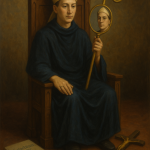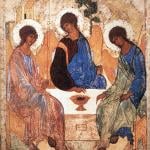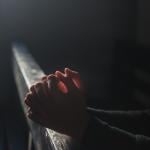Last updated on: December 19, 2014 at 12:02 am
By
CNA Daily News
Vatican City, Dec 18, 2014 / 05:02 pm (CNA/EWTN News).- The announcement that the US and Cuba will enjoy warmer relations follows more than 50 years of Vatican diplomacy, which was ramped up by St. John Paul II during his 1984 visit to nearby Puerto Rico. The Church’s commitment for Cuba has a twofold path: on one side, the relations that bishops, especially from the US, had with Cuba, thus ‘de facto’ creating a bridge between two worlds divided by the embargo; and on the other side, the Holy See's diplomatic effort, backed by St. John Paul II. Cuba is the only communist nation with which the Holy See never broke off diplomatic relations. The US broke off its ties with the island in 1961, and during the October 1962 missile crisis St. John XXIII wrote to both John F. Kennedy and Nikita Khruschev to avert a war. And the American ecclesiastical hierarchy had always been in touch with the Cuban bishops: In 1972, the US bishops' conference backed the 1969 request by Cuban bishops to end the U.S. embargo against Cuba, and in 1985, American and Cuban bishops conference exchanged a visit. During the 1980s, the Archdiocese of Boston became one of the most prominent actors in the scene of U.S.-Cuba relations. Cardinal Bernard Law, then Archbishop of Boston, strongly supported the opportunity of a new diplomatic tie between Cuba and the U.S., and advocated against the embargo. Cardinal Law visited Cuba in 1985 and 1989, and on both occasions he met Fidel Castro. Under Cardinal Law’s administration, the Boston Archdiocese started its own aid-plan to Cuba. On the Vatican side, the main actor of the reapprochment between the Holy See and Cuba was Cardinal Roger Etchegaray. Then president of the Pontifical Council for Justice and Peace, Cardinal Etchegaray made his first trip to Cuba in 1989, and spent nine days there, between Christmas and the New Year’s Day. Cardinal Etchegaray’s Cuban tour was capped by an intimate meeting with Castro during Christmas week. The meeting underscored an easing of tensions between Church and state in the officially atheist country, where practicing Christians and Jews have been objects of government repression for almost 30 years. During the meeting, Castro made no secret of his eagerness to welcome the Pope, partly because a visit would burnish his fading international image and partly because he believed John Paul II saw eye to eye with him on many of the world’s secular problems, such as disarmament, Third World debt, and poverty. Cardinal Etchegaray met Fidel Castro once again, in December 1993. In the meantime, the Cuban bishops had released the message “Love endures all things”, which marked a turnabout on the Church’s approach to the regime. The Cuban bishops substantially proposed to Castro and to his opponents – included the political refugees exiled in the U.S. – to open a political dialogue for a peaceful national reconciliation. The message was one of the hot issues of the dialogue between Cardinal Etchegaray and Fidel Castro. They both stressed they backed peace, reconciliation and the end of the U.S. embargo. It was probably after that visit that Fidel Castro changed his attitude toward the Catholic Church. Castro seemed to accept the role of the Holy See as a credible partner for dialogue about the future of Cuba. At the same time, the regime abated restrictions on the Church. St. John Paul II backed an active, although secret, diplomatic process toward Cuba, and this process had been put into effect at the beginning of the 1990s and developed through a series of high level meetings between the Holy See and Cuban administration officials. On July 12, 1994, Cardinal Bernardin Gantin, then Prefect of the Congregation of Bishops and president of the Pontifical Commission for the Central America, had a private meeting with Fidel Castro in the Holy See Nunciature in Cuba. After the meeting, Castro spent two hours at the nunciature, chatting with Jaime Lucas Ortega y Alamino, Archbishop of Havana, created cardinal by St. John Paul II in October 1994, and the first Cuban cardinal created after the revolution. Back in Rome, Cardinal Gantin reported to St. John Paul II about the improvement of the religious atmosphere in Cuba, and he also recounted that Castro would more than properly welcome a papal visit. Cardinal Gantin told the Pope that “generally, the country urges big transformations, and these latter seem to have begum, albeit on a smaller scale”, and that “the acceptance of the Church, with its features of service to Truth and Peace, can already be a meaningful change for the Cuban government.” In 1996, Fidel Castro was received by St. John Paul II in the Vatican, a signal that the dialogue was strengthened. This was the climate that led to St. John Paul II's historic visit to Cuba in 1998. The first Pope ever to step foot in Cuba, St. John Paul II said in Havana that “Cuba needs to open herself to the world, and the world needs to draw close to Cuba.” During the trip, St. John Paul II spoke about family and youth, and criticized both socialist society as well as the neo-liberal capitalism. A new way was open in Holy See – Cuba relations. Ten years later, Cardinal Tarcisio Bertone, Vatican Secretary of State, visited Cuba to celebrate the 10th anniversary of St. John Paul II’s visit, and he met with Raul Castro, who in the mean time had replaced his brother Fidel at the helm of the country. During a meeting with journalists, Cardinal Bertone stressed, “there is seemingly the opportunity to open doors: Raul knows well the people’s difficulties, what they miss, their aspirations.” Benedict XVI's trip in 2012 marked a step toward a new opening of Cuba to the world. Raul Castro was often at the Pope's side, showing his desire to update Cuba and to give importance to the visit. Cuba needs the Church to find a way out of history, and to continue to strenghthen relations with the United States. The diplomatic work is also favored by the fact that Archbishop Angelo Becciu, deputy to the Secretariat of State, has been apostolic nuncio to Cuba, and he helped organize Benedict XVI's trip. This is the path that brought to historic choice of re-opening US-Cuba relations. Pope Francis has become a main actor in this story, and his final commitment was decisive. But he also, in the end, harvested the fruits of a diplomatic work that went on throughout 50 years. Read more















